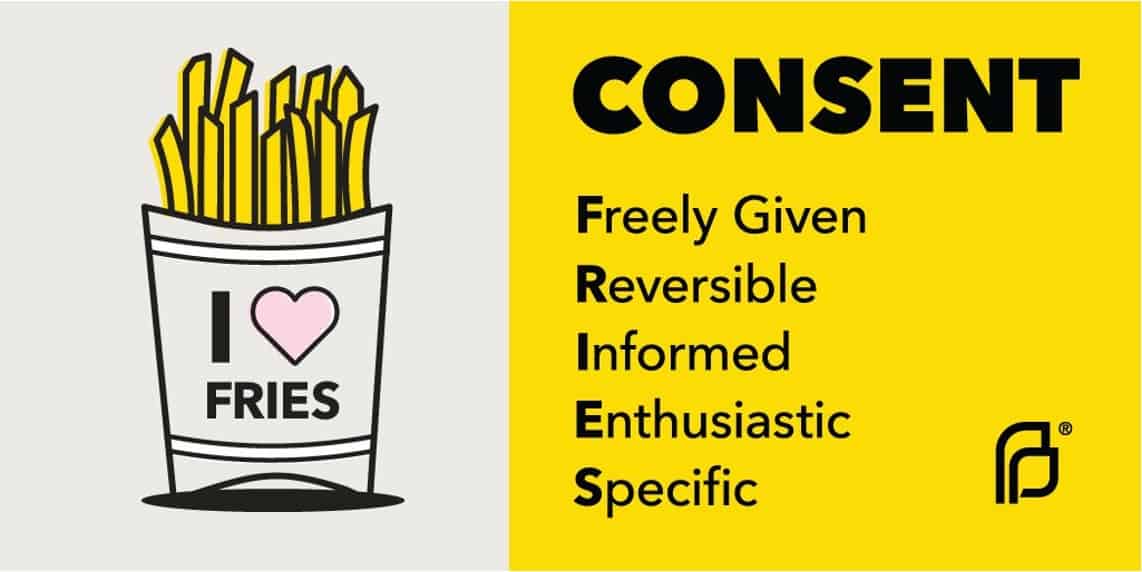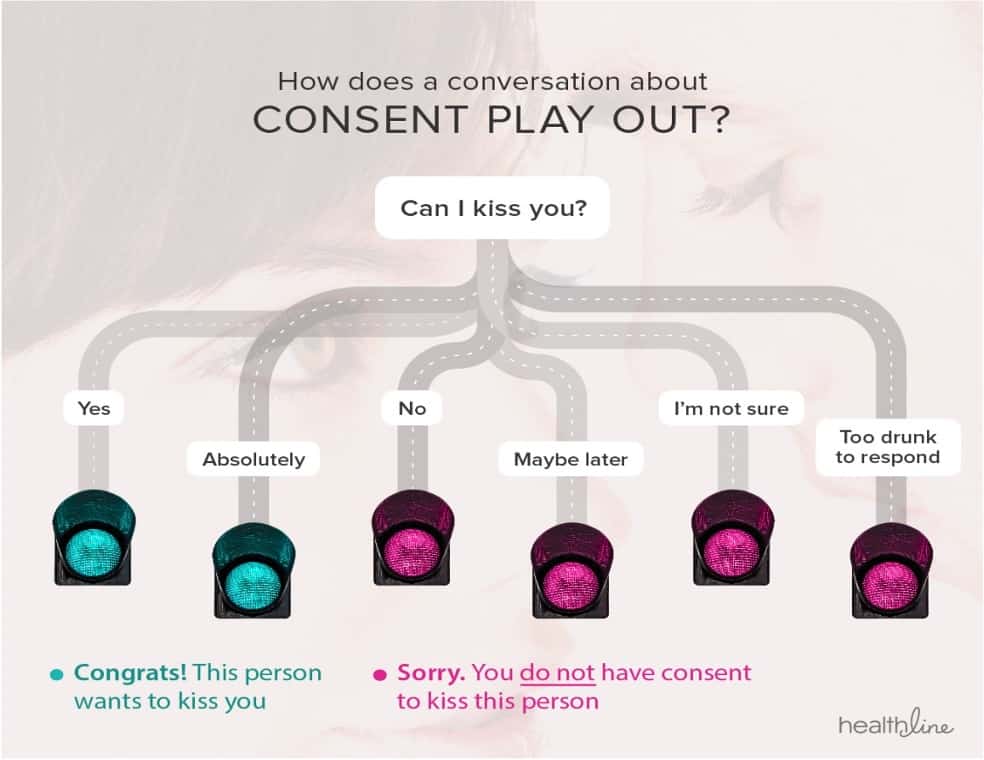Life-Stuff.org
Facts & advice foryoung adults

When under the influence of alcohol or drugs, a person’s ability to give consent or to know if someone is willingly giving their consent is severely affected.
It is really important to know that if a person is under the influence of alcohol or drugs or is unable to verbally give their consent, then they are deemed in a court of law as not having given their consent. Someone being passive or not objecting at the time is not seen as permission.
Even if someone begins by giving signals that they are consenting, they can change their mind at any time.

Remember to respect that
In a court of law, drunkenness means that the injured party would be seen as not have been able to willingly give their consent. Sentencing is severe, so if any doubt, don’t go ahead.
If someone has been sexually assaulted, it is important to remember that it wasn’t their fault. Sexual violence is a crime, no matter who commits it or where it happens. Don’t be afraid to get help. Anyone affected should go to the police, to a GP or health clinic or contact the Rape Crisis national freephone helpline on 0808 802 9999 (12-2.30pm and 7-9.30pm every day of the year). If assaulted, the person should try not to wash and keep any clothes involved for forensic evidence. See Sexual abuse.

Many of you will have seen these clips – but they say it all!